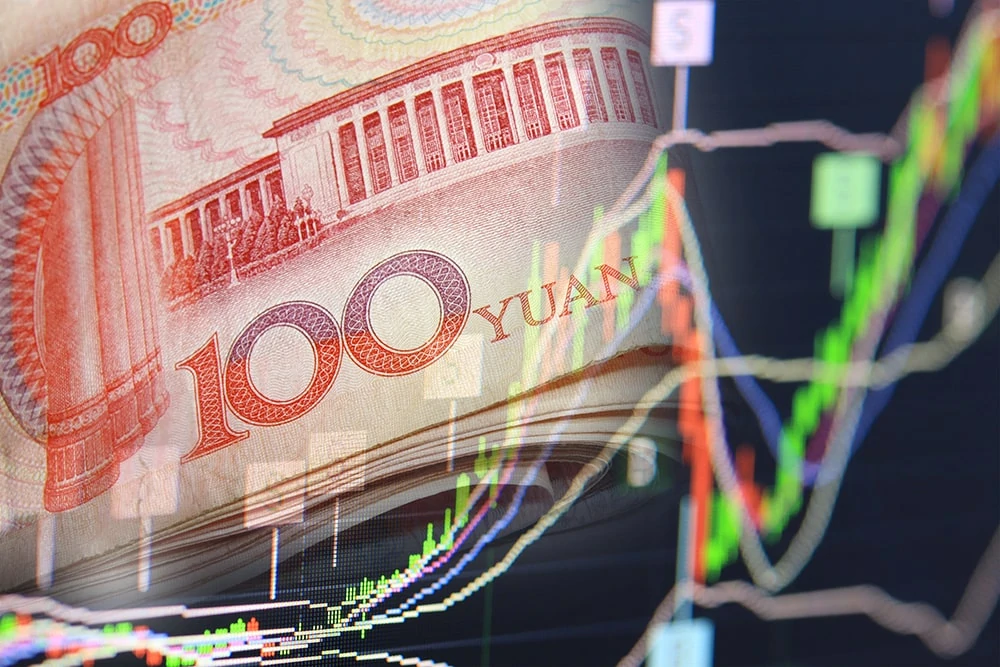Cross border transactions are complex anywhere but Callum Wade from Fintech company Ebury has the answers

Callum Wade
What are Ebury’s core service?
We are a Financial Technology (Fintech) company, specialising in cross border transactions and business lending.
Our success in cross border transactions is due to the fact we provide a service to SMEs that big banks usually only reserve for their largest clients. We offer foreign exchange and risk mitigation at a fair price for companies of any size. Working with over 15 liquidity providers gives our clients access to over 130 currencies, as well as basic risk mitigation tools—including forward contracts—which means we can provide a fixed exchange rate for up to five years. Due to client demand, we can now offer currency accounts held in our client’s own name, allowing you to collect funds locally in over 20 countries. This can really help businesses expand globally at pace, as it can sometimes take upwards of six months to open a similar facility with a traditional financial institution.
We also provide business lending with an unsecured credit line of up to £3 million to fund growth. This tool has proved particularly useful when importing from Asia, as unlike most other providers, we don’t require a bill of lading to process a payment. This means we can fund any pro-forma payments such as pre-manufacture or pre-shipping deposits.
So you also provide cash flow loans?
Our trade finance product was created to help bridge the gap between the initial ordering to selling the physical goods and receiving payment. Goods can sometimes be in transit for 6-8 weeks, which can limit the cash flow of businesses that are looking to grow. The credit line is free to set up and free to have in place. It’s simply a pool of liquidity you can dip into whenever you need a bit of extra headroom and in those times of year where cash flow is not tight, you won’t incur any costs.
You recently were awarded the top USD/CNY currency forecaster globally. Is foreign exchange trading the main part of your business?
We originally came to the market in 2009 as a foreign exchange brokerage. Offering deliverable FX services and risk management to clients in the UK and the European Economic Area. Since then, we have expanded our product portfolio to give our clients access to a full suite of transactional financial services, focusing specifically on the areas where traditional banks were falling short.
However, no matter how many more products and services we develop, it is important that we do not dilute our pedigree as a top FX provider. That is why you will regularly see Ebury at the top of the forecaster league tables on Bloomberg and leading the industry in those core services that we have built upon.
What kind of clients might Ebury work with? Are they mostly SMEs dipping toes into China?
We have over 35,000 clients across four continents. As you can imagine, they come from myriad different industries and range in size from SMEs with less than 10 employees, all the way up to multinational corporates turning over billions annually. One thing that a lot of our clients share is strong links with China or at least a desire to do business there.
For example, a client came across an opportunity to set up two stores in Mainland China through a joint venture. They needed to set up a Hong Kong entity and a bank account for that company, to accept the funds that will be used to set up these stores. They were informed by a Chinese Bank that it would take months and a substantial amount of documentation to get the account set up. With the Shanghai and Beijing stores planned to open in August of this year, time was of the essence. Furthermore, due to the funds being used to set up the stores coming from their USD account, they were concerned about high charges for the conversion into RMB.
Our success in cross border transactions is due to the fact we provide a service to SMEs that big banks usually only reserve for their largest clients
We were able to onboard the Hong Kong entity using just an online application form, proof of ID and proof of address for the signatory. USD and RMB accounts domiciled in Hong Kong were set-up on the same day. We were able to offer conversion from USD into RMB at a much sharper exchange rate than their current incumbent. The client can now send and receive funds from mainland China smoothly. With our physical presence in both London and Hong Kong we are always on call for both their Europe and Asia operations.
Can Ebury therefore help with receiving RMB from Mainland China cost effectively for business operating there?
Yes. We can help on both sides, so businesses purchasing from China and businesses selling goods or services to China. We can set up Hong Kong domiciled currency accounts for businesses who are based in the UK without them setting up a Hong Kong company. This saves a lot of hassle and cost in comparison to setting up a free trade zone entity or a non-resident account with a bank in China.
For more information on Ebury contact eleanor.stevenson@ebury.com.
For more information on the financial sector contact CBBC’s sector lead Juliet.Zhou@cbbc.org.


